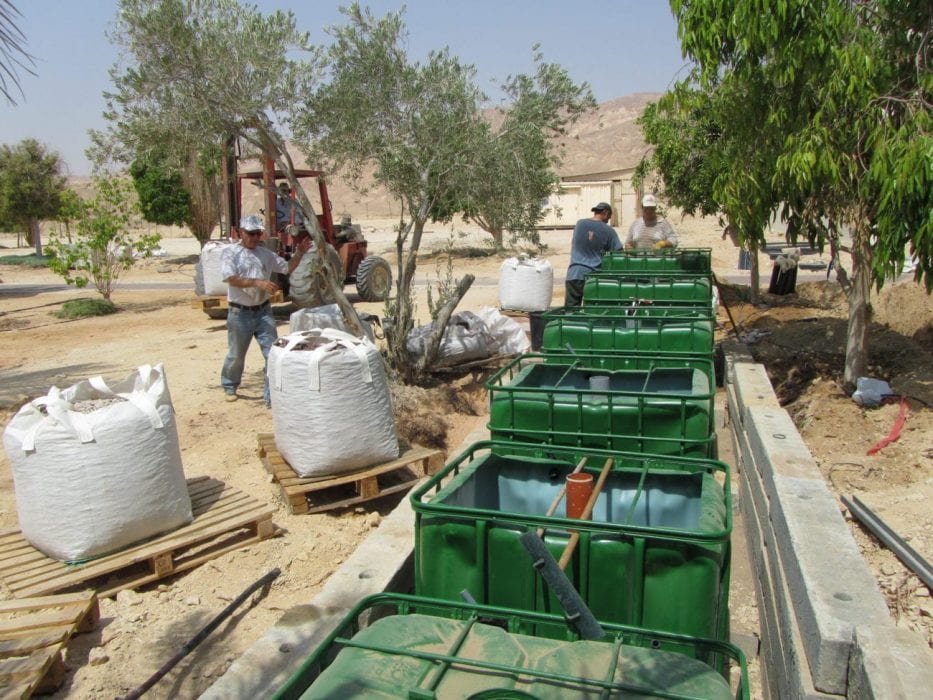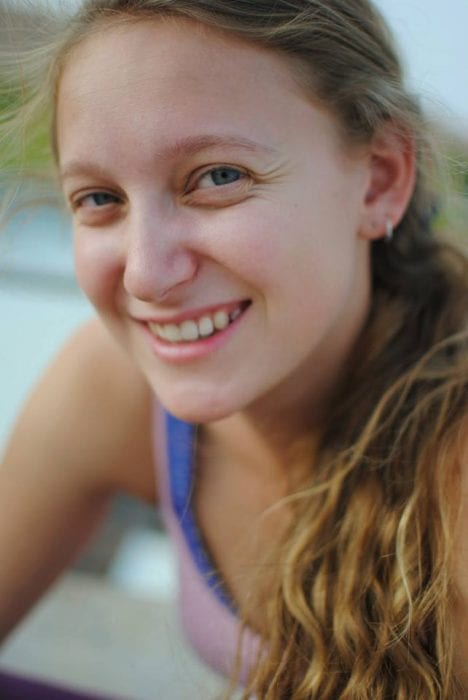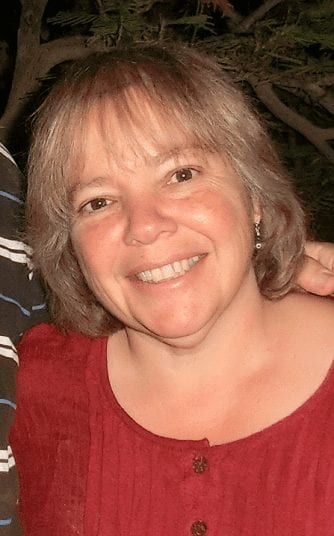Ramadam Kareem
The month of July has been a relatively quite month without students and few interns. Moslems celebrated the month of Ramadan with fasting and prayer while Jews commemorated Tisha B’av with one day of fasting and prayer. Those of us left at the institute in the Arava summer tried to avoid the heat staying indoors or in the pool. Judy Bar Lev, our office manager provided some respite by organizing our annual office staff and family ice cream party. After a very hectic June which signaled the end of the semester, we are all enjoying a quiet summer and starting to gear up for the fall. I am sure that all of us in the region; those of us who fast and those of us who don’t, those of us who pray and those of us who hope and those of us who do all of the above are focusing on the upcoming renewed peace talks between Israel and the Palestinians. We hope and pray that this time around they will succeed.
David Lehrer
The Arava Institute and Naked Sea Salt Collaborate to Protect Dead Sea
The Arava Institute for Environmental Studies (AIES) has proudly announced a planned collaboration with its newest donor, Naked Sea Salt, the first ever salt company to take an active role in protecting the Dead Sea’s environment. The company, now launching on Kickstarter, will collaborate with AIES to raise awareness, and donate a portion of its profits to fund environmental protection programs; like the effort to promote the rehabilitation of the Jordan River and Dead Sea in its Center for Trans-boundary Water Management “AIES-CTWM” Clive Lipchin, Director of the Center for Trans-boundary Water Management, acknowledged the significance of the collaboration, saying, “For Naked Sea Salt to take such significant action is a critical step in the right direction. Their dedication to the environment makes them a pioneer of sustainable practice in the region.” Adds Lipchin, “Too often, companies don’t think about the effect of their commercial activities on the environment. In the Dead Sea, in particular, this has been the case. The current crisis facing the region is the result.” The founder of Naked Sea Salt is Dead Sea activist Ari Fruchter, who began the company after working on an awareness-raising project in the region in 2011. “Naked Sea Salt will actively work for the protection of the Dead Sea,” he says. “The environment plays a critical role in the quality of our salt; our production methods reflect our respect for it as a natural wonder and the center of our work.” The company, launching its campaign on Kickstarter, in efforts of bringing attention to its line of all-natural, gourmet salt, the first from the Dead Sea’s mineral-rich waters. AIES is optimistic that its work with Fruchter will be a model for other industries in the region and signal a new level of cooperation between commercial interests and environmental ones. “We appreciate what Naked Sea Salt has proposed because they are committed to supporting the region,” says Lipchin. “We hope more companies follow their example.” To learn more about Naked Sea Salt’s campaign, visit their page on Kickstarter.
Did You Know? Arava Beetle is Named after Academic Director Dr. Elli Groner
A new species of weevil was discovered in Israel by Dr. Elli Groner, the Academic Director at AIES. The weevil, which is a long-nosed beetle of the family of Curuculidae, belongs to the genus of Brachycerus. It was discovered by Dr. Groner in the Hatira Ridge in the Negev highlands. Recently it was described by an Israeli expert on weevils, Leonid Friedman, together with Amir Sagiv. It is similar to an existing species, Brachycerus argillaceus, that inhabits the Mediterranean and the semi-desert areas of the Southern Coastal Plain and Northern Negev, but differs in the flat eyes, elytral tubercles, and very low ridges. The species was named Brachycerus groneri by Friedman and Sagiy, “in honor of Israeli ecologist Dr. Elli Groner, the leader of a research group that studies the biodiversity and ecology of arthropods in Israel, and the collector of part of the type series.” It is this type of discovery of a new species that helps protect biodiversity and desert ecosystems. Dr. Groner said in response to the discovery and naming: “ I’d rather have added a new species to science than another publication.” Submitted by Kayla Santosuosso
On-Campus Greywater System Nears Completion
Last week the major construction components of the greywater treatment and reuse system for the new JNF Mountain State Region dorms were complete at the Arava Institute. This system is connected to 2 units in the new student dorms funded by the Mountains State Region (Colorado) of the JNF which were constructed with high environmental performance in mind, and will be a test site to monitor the systems treatment capacity and efficiency. Six more similar systems will be constructed as part of the USAID-Conflict Management and Mitigation funded project – entitled “Mitigating Trans-boundary Wastewater Conflict.” In the coming 6 months. Four of these systems will be built in Palestine and 2 in Israel. Thanks to the Osprey Foundation, the institute is very proud to have the first site built on Ketura at the dorms, allowing the researchers and students to continuously study, test and optimize the system for future implementation in rural decentralized households which are not connected to any wastewater infrastructure. Submitted by Shira Kronich
Dr. Shmuel Brenner Co-authors Paper on the Effects of the Oslo Peace Accords on Waste Management in the Middle East
Dr. Shmuel Brenner, faculty member of the Arava Institute, recently co-authored an article published in the Journal of Peacebuilding & Development. The article, entitled “Peace and Pollution: An Examination of Palestinian—Israeli Trans-Boundary Hazardous Waste Management 20 Years after the Oslo Peace Accords” qualitatively evaluates the outcomes of the Palestinian–Israeli Oslo environmental peace agreements regarding trans-boundary hazardous waste management. The paper argues that “although the environmental negotiations that took place within the framework of the Oslo Accords can be seen as a significant milestone for environmental cooperation, many objectives were never achieved….Ultimately, both parties were left with sub-optimal trans-boundary management, in practice, because broader political disputes derailed cooperation in many technical spheres.” The authors chose to focus on hazardous waste because of its “potential for inefficient management to impact on public health and shared ecological resources.” The full article can be accessed here. Submitted by Kayla Santosuosso
Alumni Profile: Jessye Waxman
Jessye Waxman, a student from spring semester 2013, is studying environmental science and policy at Duke University. For Jessye, studying at the Arava Institute has demonstrated the difference between listening to a lecture and learning from individuals’ experiences. This is especially true of the Peace-Building and Environmental Leadership Seminar (PELS) where Arava students from many different cultures and backgrounds engage in dialogue about political issues. “There is enough comfort in the group that people can say whatever they want. You learn a lot when people aren’t afraid to say what they’re really thinking, ” says Jessye. Jessye has been involved in environmental projects since she was 12, focusing primarily on environmental education. She is interested not just in hard science, but in the politics around environmental issues. She’s currently studying the connection between environmental movements and democratization in Jordan, Egypt, and other Arab Spring countries.
Faculty Profile: Dr. Avigail Morris
Anthropologist, Dr. Avigail Morris has rejoined the Arava Institute as both a researcher and lecturer. Avigail has been associated with the institute intermittently since 1997. In the fall semester Avigail will teach a joint course with Dr. Aaron Frank entitled “Collapse” which will include an anthropological approach to environmental studies. Avigail, who is employed by both Arava Institute and the Science Center is currently involved in 3 research projects. The first is a cross-cultural comparative study on ecosystem services on both sides of the Israeli-Jordanian border in the Arava. The second project is entitled: The Process of Ageing in the Arava and the Dead Sea: Perceptions, Experience and Planning for the Future. Avigail is also in the final stages of a project with Dr. Sarab Abu-Rabia on informal incomes among Bedouin women in unrecognized Bedouin villages. In 1988, with the support of the Jerusalem Center for Anthropological Studies, Avigail developed a program for teaching anthropology to children and young adults. For the past 24 years she has taught cultural anthropology on several levels including elementary, high school, undergraduate and graduate. Over the years she has also taught several seminars and workshops on qualitative research methodology with an emphasis on ethnographic fieldwork. In 1994 Avigail traveled to the Kingdom of Tonga in Polynesia in order to do fieldwork for her doctoral thesis entitled, ” Playing to a New Rhythm: An Ethnography of Female Games and Sport in the Kingdom of Tonga”. Her fieldwork involved an in-depth study on traditional and changing gender roles and status among both urban and rural women in Tonga. In 2011-12 she returned to Tonga to update her thesis and to study informal incomes amongst Tongan women. She is in the process of writing up her findings. Recently, Avigail has also joined the Peace Building and Environmental Leadership Seminar committee, together with Dr. Sarab Abu Rabia who has replaced Dr. Tareq Abu Hamed. Avigail has recently published 2 papers on ecosystem services together with AIES student and faculty. Avigail is a member of Kibbutz Ketura.







